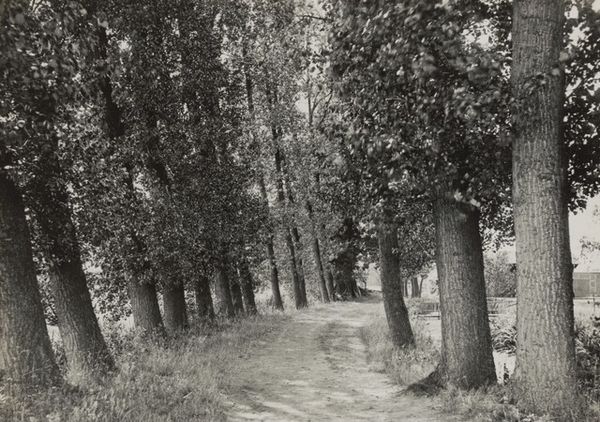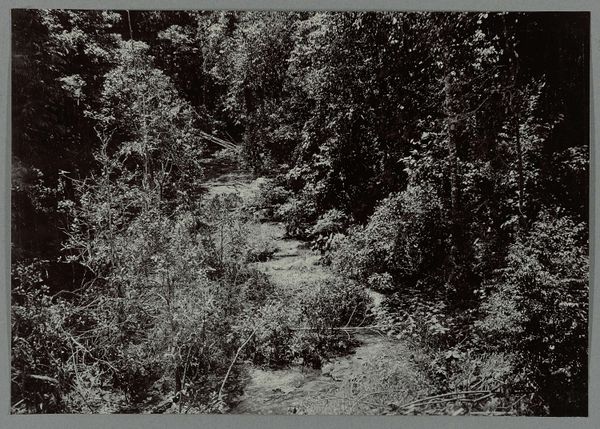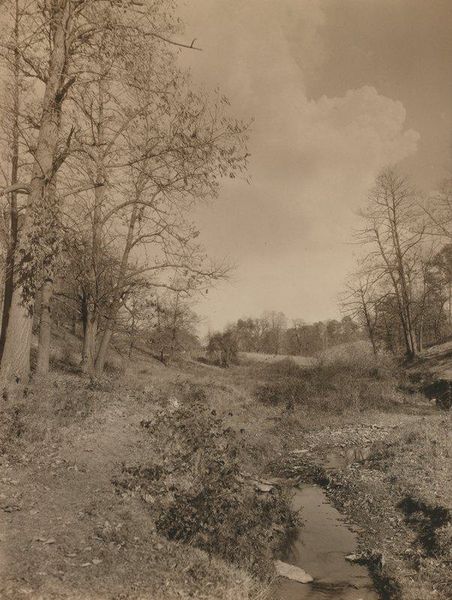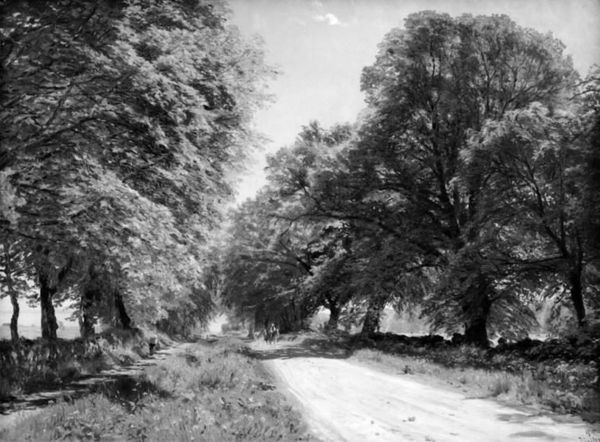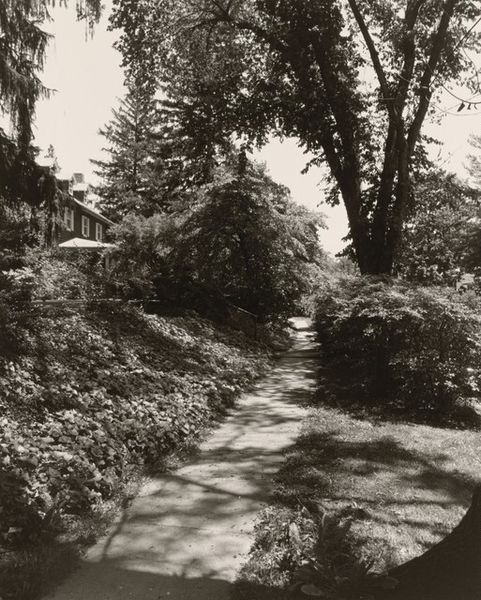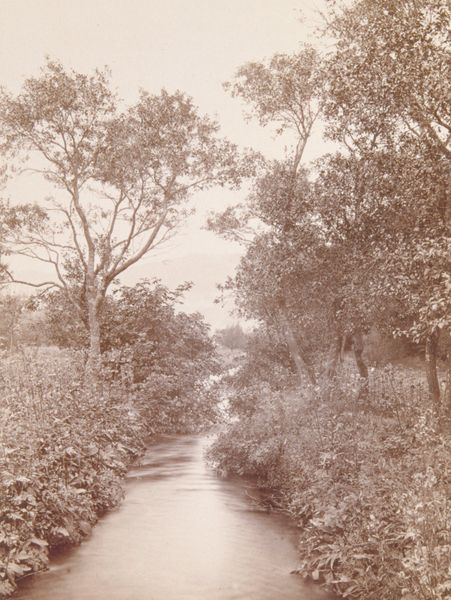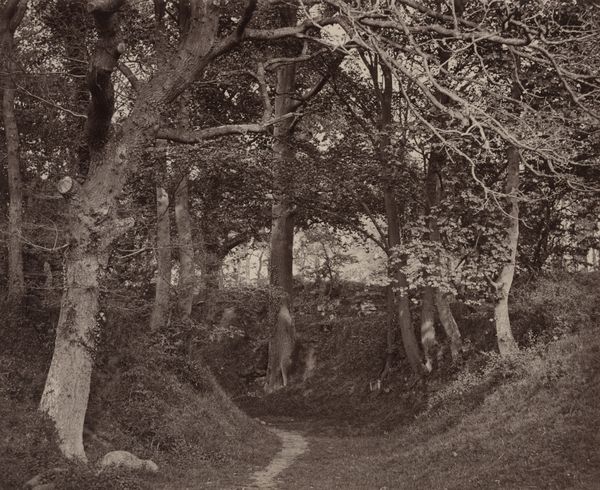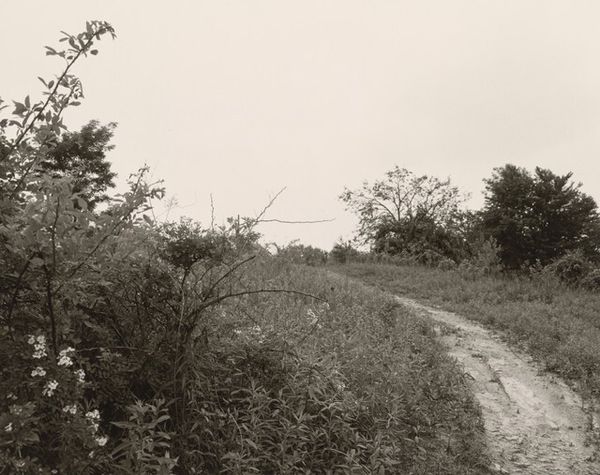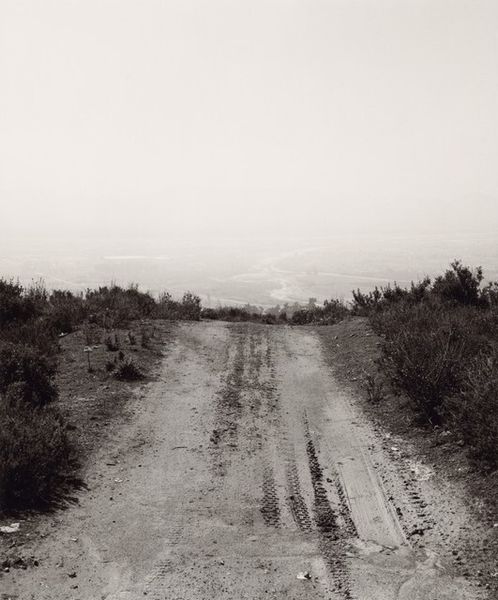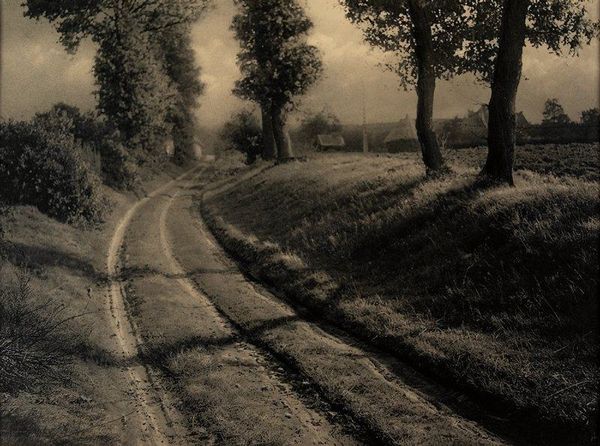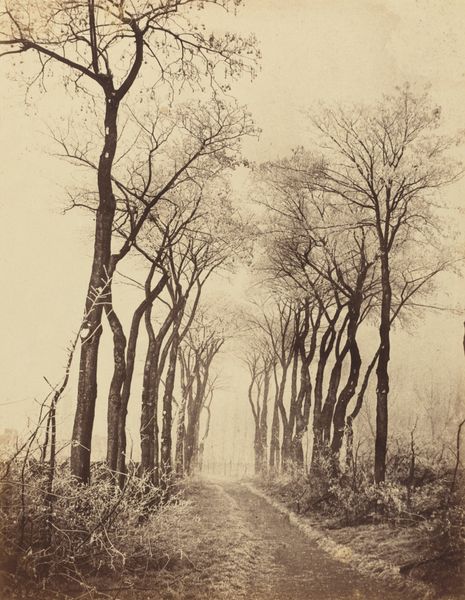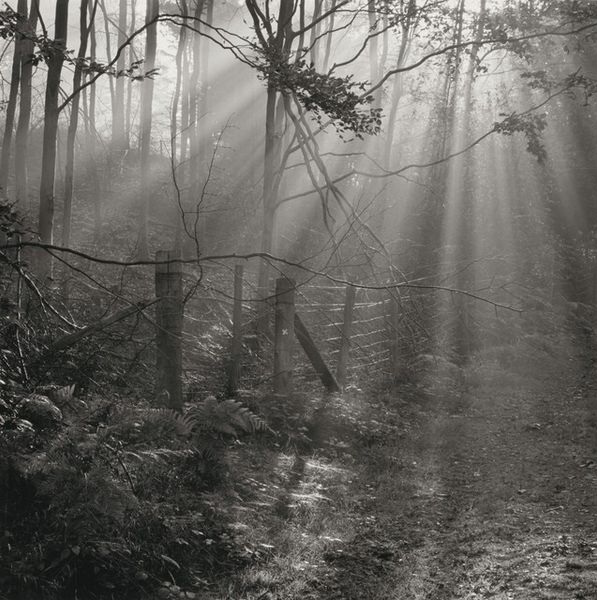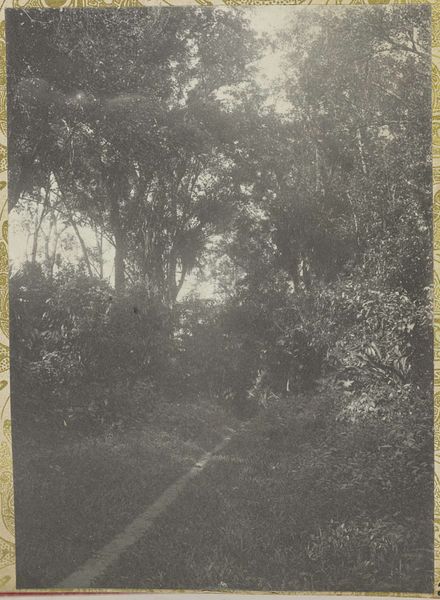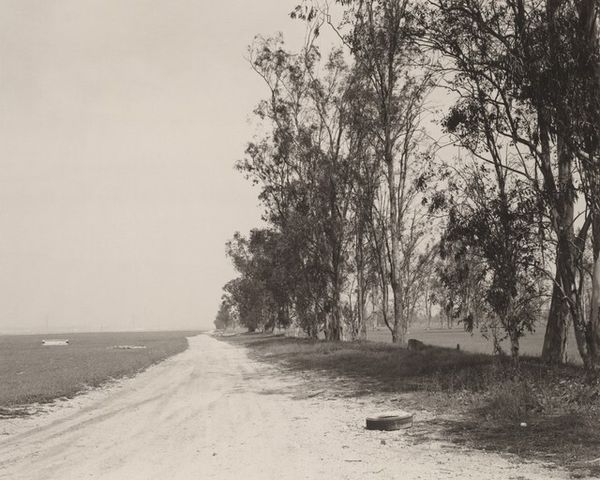
Eucalyptus alley through citrus orchards, Grand Terrace, California 1982
0:00
0:00
plein-air, photography
#
solitude
#
natural shape and form
#
black and white photography
#
countryside
#
plein-air
#
landscape
#
rural
#
nature
#
photography
#
outdoor scenery
#
monochrome photography
#
natural form
#
monochrome
#
shadow overcast
Dimensions: image (and sheet): 28.3 × 22.7 cm (11 1/8 × 8 15/16 in.) mount: 39.4 × 35.5 cm (15 1/2 × 14 in.)
Copyright: National Gallery of Art: CC0 1.0
Curator: Let's delve into Robert Adams' 1982 photograph, "Eucalyptus alley through citrus orchards, Grand Terrace, California." What's your first impression? Editor: It feels incredibly still, almost suspended in time. That black and white lends a kind of weighty quiet, don’t you think? Like all the noise of California is muted, replaced by this dirt road leading to…nowhere, really. Curator: The choice of black and white is critical. Adams was deeply invested in documenting the changing American West, often focusing on the impact of human activity on the natural landscape. Black and white simplifies the composition, directing attention to form, texture, and the very particular qualities of light. It's about documenting a reality, even as it romanticizes it. Editor: Romanticizes, maybe. But there’s a grit, too, Curator, in the grain of the photograph itself. Look at the road! You can practically feel the dust under your tires, the rough bark of those trees. It’s not postcard-perfect beauty. There's decay, and the threat of something being overtaken, even in that sunny California light. The eucalyptus trees, they’re almost devouring the orchard. Curator: The eucalyptus themselves are an interesting choice. They were introduced to California for timber and windbreaks, reflecting human attempts to engineer the landscape for economic gain. The citrus orchards point to agricultural production, the backbone of the region’s economy. Editor: And doesn’t that row of trees feel almost…funereal? It is probably just me and my melancholic state of mind. Maybe it is beautiful but I find it a tiny bit ominous, like you are riding toward the afterlife. Curator: That’s a provocative reading! But this really goes into what he was up to. Editor: It definitely resonates, doesn't it? These images force you to consider the material world around you. Very thought-provoking. Curator: Indeed. I am left thinking a lot more about photography's relationship to the commodification of the American landscape and its transformation through extractive capitalism.
Comments
No comments
Be the first to comment and join the conversation on the ultimate creative platform.
